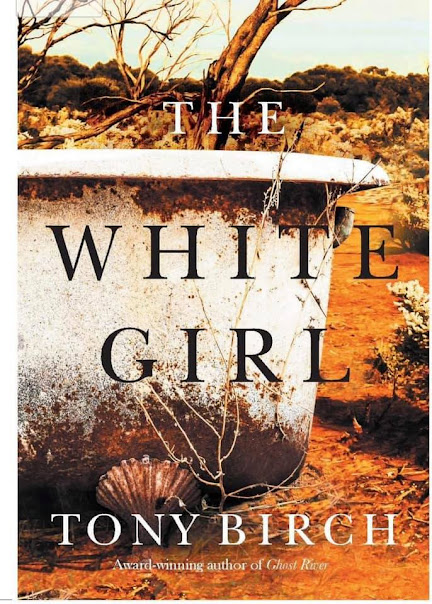The White Girl by Tony Birch
The White Girl by Tony Birch
A Book Review
A Book Review
From early childhood, we are conditioned to stereotype races, gender, cultures and people who occupy certain occupations. However, it is perhaps not wise to paint everyone with the same brush. There’s good people too as is evidenced in this beautiful story.
The setting of this story is in the early sixties in a fictional town called Deane in Australia. It was a time when the White Australia Policy Act was in place and when the native people of the land were denied citizenship and were in the legal custody of the state.
Odette Brown, an ageing and sickly Aboriginal grandmother, takes care of her granddaughter, Sissy. Odette’s daughter, Lila, does not reveal who the father of her decidedly pale-skinned daughter is and leaves her in the care of her mother while she skips this backwater. It is still the time of the Stolen Generation when half caste children were forcibly removed by the state to be placed in white institutions. Sissy falls under the radar of being removed because the present town policeman, Bill Shea, is not sober or officious enough to concern himself with Aboriginal matters. This all changes though when the new Sergeant Lowe installs himself into this sleepy town and is determined to enforce the Aborigines Protection Act by ensuring that the half caste Sissy is removed from her grandmother’s care and placed in the custody of the state.
There were many parallels of the Aboriginal situation to the one of apartheid South Africa where the natives were poorly and brutally treated by the White political system in power. Although the themes of racism, dispossession and powerlessness of the indigenous people are dark and uncomfortably evident in this novel, it is lightened by the poignant and loving relationship between the grandmother and her grand daughter. The extent to which the frail and feisty Odette goes to protect her sweet Sissy draws the focus of this book to feel-good themes like hope, family and love. So while the story details a shameful past of the failings of Australia, it is by no means a story borne of hatred; rather, the tender storytelling explores relationships with good, white people like the junkyard owner, the town’s bumbling police officer, the polite and empathetic Jewish doctor and the kind clerk at the Citizenship office which surely suggests hope and optimism for the future. The white Kane family with their ruffian father and the malicious older brother as well as the newly appointed, dogmatic police officer act as the foil for the good-hearted white folks and saves this novel from being too sanitised regarding the atrocities inflicted to the first people of the land.
Tony Birch, in his engaging writing style is truly talented. He manages to so effortlessly create the drab and dour small town setting, his fully-fleshed characters, the developing relationships and the recounting of historical events without being bogged down by detailed description. Through the eyes of the strong woman protagonist, Odette, he succeeds in creating an uplifting novel where hope triumphs despite the backdrop of corruption and mistreatment.
Odette is a strong matriarch figure who is an example of an Everywoman and who proves that despite the corruption, dangers and uncertainty one is faced with, the love for family will move mountains. Residing in Australia, you are bound to hear about the barbaric act that characterised the Stolen Generation during the dark period of 1910 - 1970, but there’s nothing like a work of fiction with warm, emotion-charged characters that succeed in opening the readers’ taps of compassion and endow life to an otherwise abstract, historical event in its universal testament of the unfailing human spirit. The only negative aspect of this book was that because it was so heavily plot driven, you were forced to digest it too quickly which meant that you had to bid goodbye to Odette who could easily be your favourite aunty and her delightful granddaughter, Sissy, before you were ready to.


Comments
Post a Comment